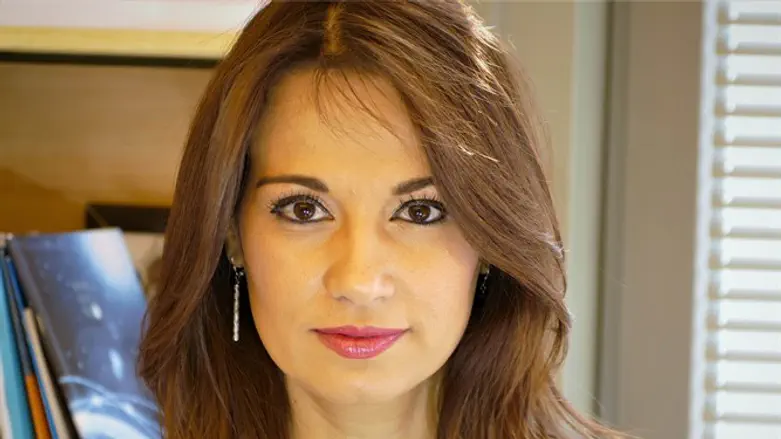
The Knesset's Special Committee for the Rights of the Child met this week to discuss parental alienation and the issue of inciting children against one of their parents - usually the father - in order to destroy the connection between them.
Most alienated parents are fathers, since mothers automatically receive custody of all children under age six. If even one child is under six years of age, the mother will receive automatic custody of all the siblings in case of divorce.
Committee Chairwoman MK Yifat Shasha-Biton (Kulanu) called for a "revolution" in the system's approach to the subject, explaining that the current system discriminates against fathers because of their gender.
Is the mother abusive? Put the children in foster care
"There needs to be a change in the public's perception of these issues," Shasha-Biton said. "I have seen gender discrimination in more than a few cases where the mother is harming the children, and the children wish to live with their father. In these cases, the authorities usually attempt to rehabilitate the mother, but at no point do they say, 'Okay, let's transfer the children to their father.'"
"If they say anything, it's, 'Let's transfer these children to a foster family until things get better.' And I stood up and said, 'Excuse me. If the children want to live with their father and want him to have custody, and the father is fit to have custody, he is good for the children, and the children will be safe there and have been with him before - why should you place the children with strangers when there is a solution at home?'
"They told me, 'Because of divorce conflicts, it's complicated.'
"We know that when there is a concern the father will harm his children, the father is only able to see his children at a supervised contact center. We also know that when things are reversed, this rarely happens, and the authorities choose instead to rehabilitate the mother. I am all for rehabilitation, in this case and in that case."
The mother called the police
Shasha-Biton emphasized the fact that she speaks from personal experience.
"I worked with two girls who were their mother's sacrifice in the war between her and their father," she said. "The girls lived with their mother, and every time their mother wanted to punish their father, she would refuse to let the girls attend Scouts meetings, or would refuse to let them go on a school trip scheduled for the next morning."
"Sometimes, when the girls spent an agreed-upon night at their father's, the mother would call the police to the father's house to bring the girls home. She would do all sorts of things like this. I worked with these girls, and no one can tell me I'm making up stories. I spoke to the girls themselves."
Mothers are told by their lawyers to lie and claim that their partners hit them or harmed the children. This creates a criminal record for the father, and allows the mother to demand higher child support.
MK Yael Cohen Paran (Zionist Union) claimed that the contact centers, where children see a parent - usually the father - under supervision of a stranger for an hour a week, are meant to "punish" the father when he "incites" against the mother.
The issue, she said, is that the Welfare Ministry does not have enough staff to allow appropriate use of the centers. Therefore, the father who they want to "discipline" cannot see his children for several hours a week until he changes his ways.
If the Welfare Ministry had more money, she claimed, the fathers would be able to see their children for multiple hours a week instead of only one hour a week. Since the Welfare Ministry does not want to completely destroy the children's connection with their fathers, the Welfare Ministry does not usually use contact centers to deal with cases where the father speaks against the mother.
In fact, until the divorce agreements are final, the non-custodial parent meets their children for one hour once a week at a supervised "contact center" only. Finalizing the divorce agreements can sometimes take years, during which time the children are unable to have a healthy relationship with their non-custodial parent (usually the father).
Israel Hayom journalist Michal Yaakov Itzhaki, who investigated the issue of contact centers and parental alienation several times, explained to Cohen Paran that, in fact, the contact centers themselves are the tool used to alienate children from their fathers.